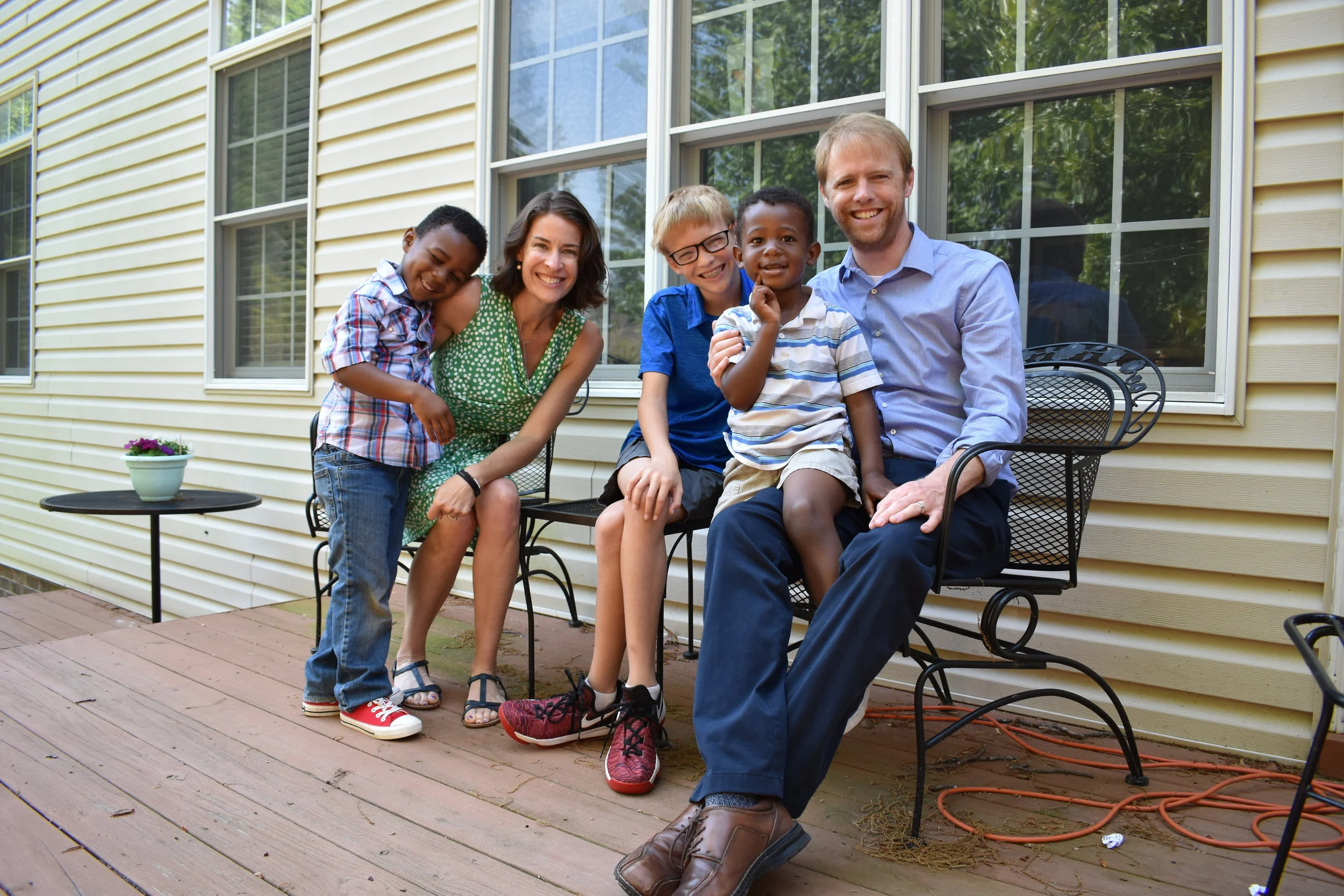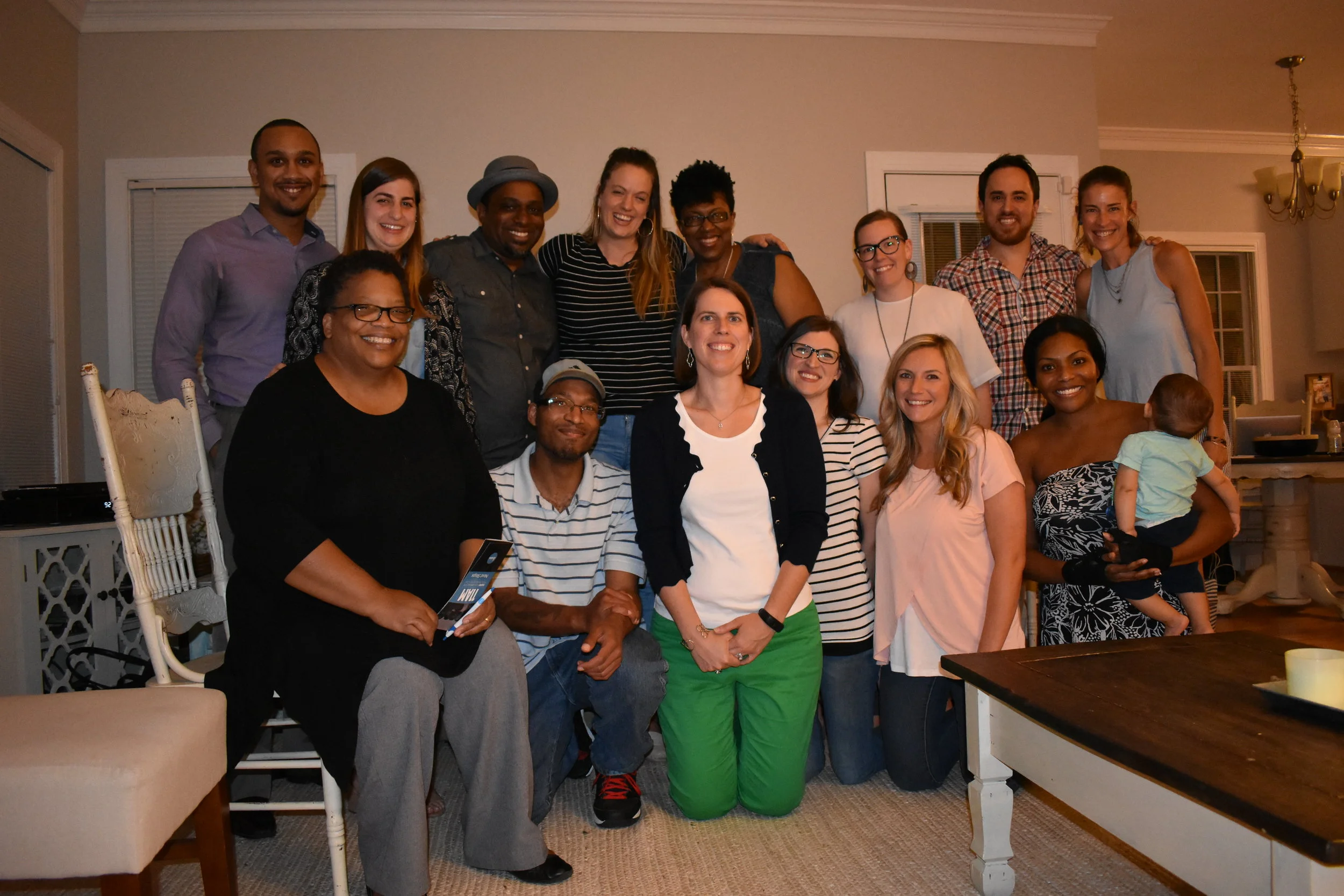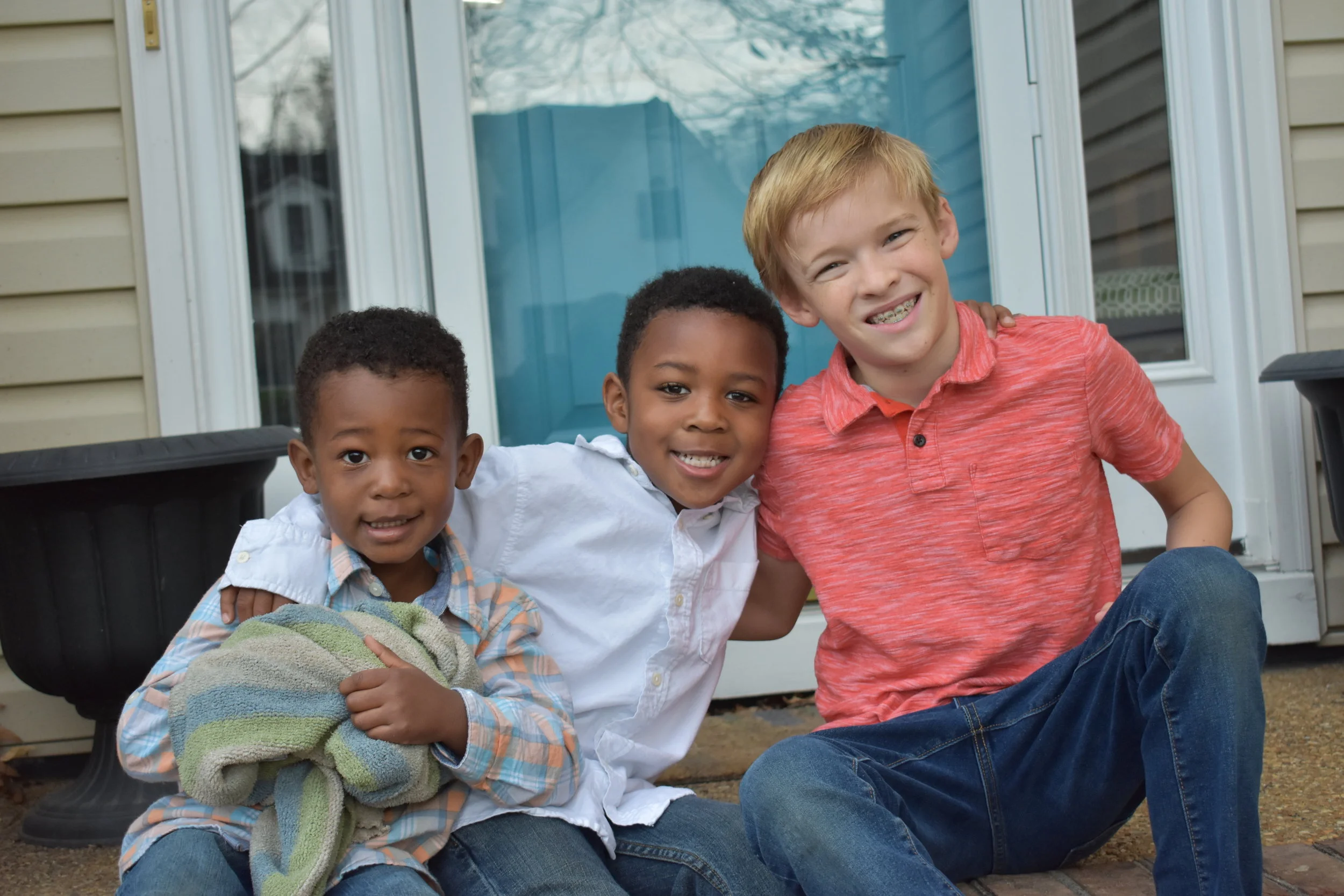Who is Carolyn Ogrosky?
Carolyn Ogrosky grew up an hour north of New York City in the suburbs. She first came to Richmond as a college student at the University of Richmond. After an influential experience studying abroad in London, she returned to Richmond and became involved in an African American church. She has worked professionally within the faith community on college campuses and as a gospel choir director. She lives with her husband and three boys, two of who are adopted and African American. She is still active in the faith community and considers herself an evangelical. She sees racial issues as inherently tied into issues of faith.
Excerpt from interview with Carolyn Ogrosky by Whitney Dow, 2017
Q: How did faith intersect with this sort of understanding of race both pre-this awakening and post-?
Ogrosky: [17:18:54] How did my faith intersect with my awakening both before and after it happened? It didn’t intersect at all before it happened. There was nothing about the way I was raised to believe in God, the way I was raised to express my faith, that even asked questions about my identity as a white person, even asked questions about the inequalities that I might have seen in the spaces around me. Those were just two totally separate things, not even slightly interested in one another.
As I mentioned before, my awakening happened when I was living abroad and part of that was being involved in an international church, and so they embraced diversity. They celebrated diversity. They encouraged people to tell their stories to think about why it was beautiful that the pastor came from Cameroon, and the worship pastor came from Germany. And what different things that they had learned in their faith traditions, and how did those encourage one another? How did they both bring things to the table?
And so, when I came back, I was asking those questions when I was looking for a new faith community. I actually ultimately ended up joining an inner-city church down in that, the Creighton Court, the area that I worked with after college—or the area of Richmond I worked in after college. I joined this church, and I was one of three white people.
The first Sunday that I visited, the church was predominantly black, and I wasn’t sure I would ever come back. I just thought, “I’m going to try, try this place, see what happens,” and I was really embraced by people. They invited me to stay, and they invited me to sing in the music team. And even that very first Sunday actually, the pastor—it was kind of a harrowing experience for me as a person who had grown up in churches that were very structured. They were singing this song and over and over, and I didn’t know the song, but I had shut my eyes and was just listening and enjoying the music. It was in the gospel tradition, which was totally new to me at that point.
And at some point, I heard—this was also new to me. There was a woman pastor leading the music, and she said out loud into her microphone, “You look like somebody who wants to worship.” And I’m just sitting there with my eyes closed, worshipping, enjoying, and she said it a few times until finally the person that was standing next to me, who I didn’t know, poked me in the shoulder and said, “She’s talking to you.” And so, I opened my eyes, and I looked at her, and I said, “Me?” And she said, “You look like somebody,” and I was like, “Yes,” and I already felt conspicuous because I knew that I was one of just very few white people in the room. And she said, “Why don’t you come on up and lead with us this morning?”
I’ve never still been able to figure out why I said yes. But I got up, and I walked up, and she handed me a microphone, and I sang when I could and ended up back that Thursday night for practice for the next Sunday, and that ended up being my community the next two-and-a-half years until I moved. It’s why I ended up working there after college. And those relationships were really powerful in helping inform the beginning of my journey of understanding my own whiteness with those cross-cultural relationships. And doing ministry together, learning new ways of singing, learning new ways of preaching, learning new ways of friendship, learning to understand what it meant that a lot of these people in the church had grown in the projects, which is a place I had never been before and didn’t really understand other than what I would see in the news. And so, my faith very much intersected with that awakening and continues to intersect with that awakening.
Interview Transcript
Participant-Submitted Photos


